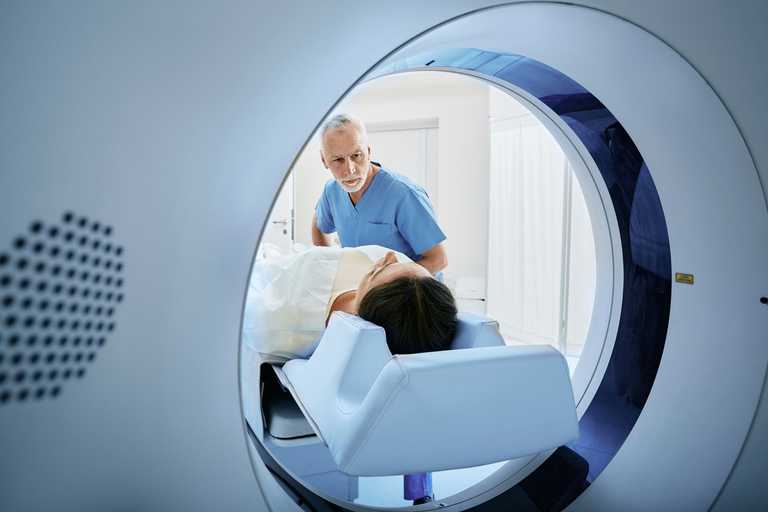What is ‘contrast’ and buscopan?
For a Multiparametric MRI (mpMRI) it is necessary to inject a contrast medium (gadolinium), a liquid dye that is used to enhance the appearance of anatomy during an MRI scan. The dye is injected into a vein in your arm. If you need a contrast medium, you may also need to have a blood test before your scan as a precaution and to check your kidney function.
For mpMRI and Biparametric MRI (bpMRI), you may require an injection of a drug called Buscopan. The constant peristaltic movement of the bowel inside your abdomen can cause blurring of the images making them difficult to interpret. Buscopan is an antispasmodic agent that temporarily slows down this movement and improves the quality of the images. It is most commonly injected through a cannula inserted into a vein, usually in the arm or back of your hand. It will remain there until your scan is finished.
Related FAQ(s)
- How will the NHS and primary care benefit from the MRI Prostate Health Check service?
- Why doesn’t Private Medical Insurance cover an MRI Prostate Health Check?
- I am a GP, can I refer my patient for an MRI scan with a raised PSA level?
- Why do I need a prostate biopsy?
- What is the most accurate test for prostate cancer?
- Can I be referred back into the NHS for treatment?
- Is MRI or ultrasound better for prostate cancer?
- How accurate is an MRI to detect prostate cancer?
- When should I see my GP?
- Can I self-refer for a prostate MRI scan?



